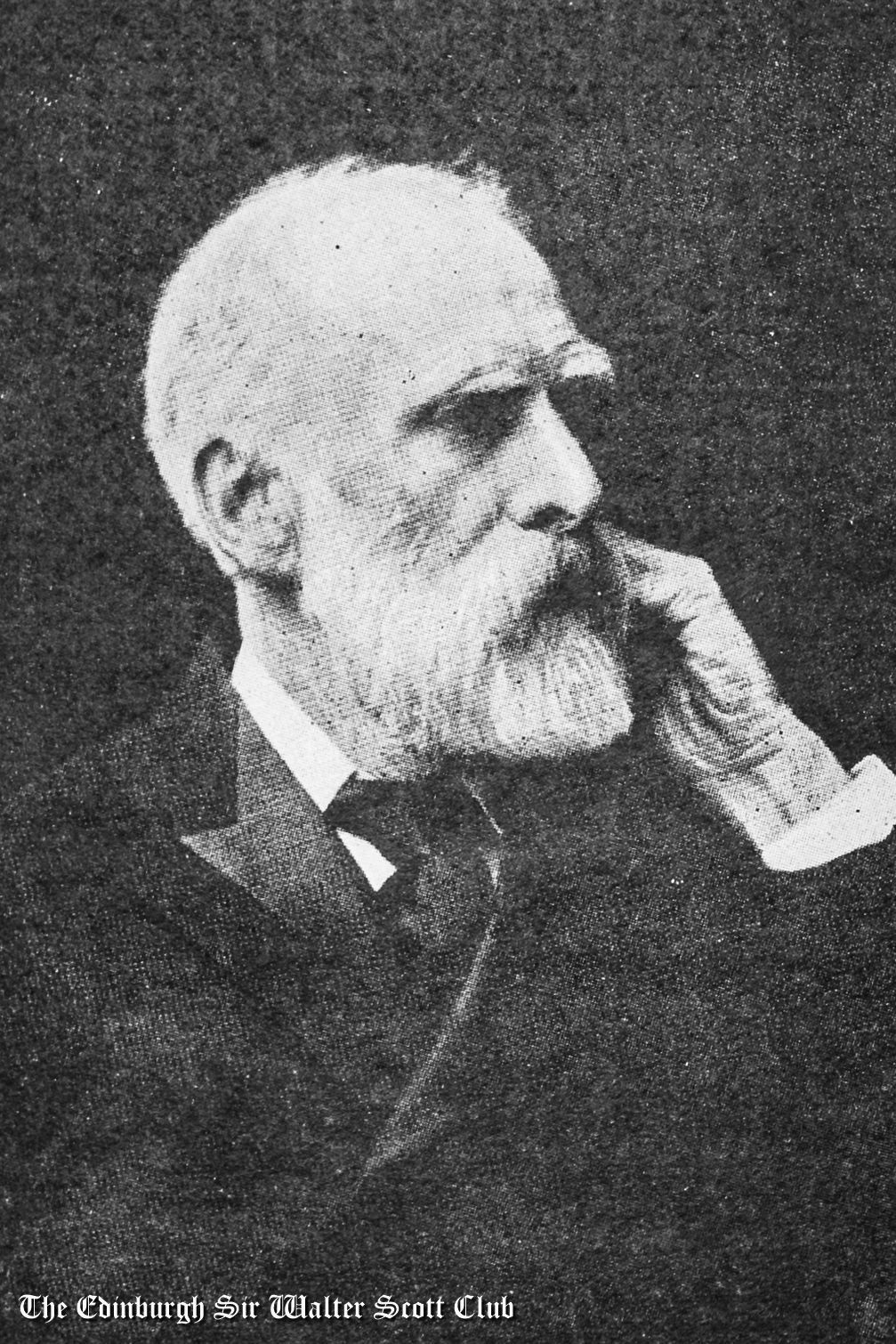1914-1919
Our President from 1914-1919 was:
The Right Hon. Viscount Bryce
He proposed was due to propose the Toast to Sir Walter in 1914 but the Dinner was cancelled due to the outbreak of the First World War.
He finally gave the Toast to Sir Walter at our 21st Annual Dinner on Tuesday 11th November 1919 in The Royal Arch Hall, Edinburgh.
Download the [transcript] or read the [bulletin]
Summary of the Speech:
Viscount Bryce began by expressing gratitude for his presidency, delayed in celebration due to the war, and his admiration for Sir Walter Scott’s lasting legacy. Bryce reflected on Scott’s role in unifying Scotland's Highlands and Lowlands, improving the perception of Scots in England, and introducing Scotland to a global audience. He praised Scott for romantically transforming Scotland’s landscapes through literature, and for bringing depth, charm, and realism to his characters and settings.
He acknowledged that although literary tastes had shifted toward complexity and novelty, Scott’s simplicity and vivid storytelling remained valuable. Scott’s poetry and prose, especially the Waverley Novels, played a foundational role in establishing historical fiction as a genre. Unlike other novelists, Scott combined historical understanding with narrative craft, illustrating national character and social forces with great insight.
Bryce also defended Scott against modern critiques of plot looseness and lack of psychological depth, pointing to his vivid episodes, rich characterisation, and enduring Scottish humour. Figures like Dandie Dinmont and Jonathan Oldbuck exemplified Scott's ability to portray ordinary life with humour and empathy.
Importantly, Bryce emphasised Scott’s generosity of spirit, humility, and ability to connect with all levels of society. He concluded that while Scott had his flaws—occasional diffuseness, romantic sentimentality—his greatness as a storyteller and humanist ensured his place in world literature.
Interesting Points Worth Highlighting
- Scott as a Unifier of Scotland: Bryce stresses Scott’s role in reconciling Highland and Lowland identities—key in fostering a shared Scottish national pride.
- Scott’s Global Influence: Anecdotes from Bryce’s travels in Europe show that Scott was often the first association people made with Scotland—long before tartan tourism.
- The Power of Romantic Landscape: Bryce notes how Scott gave Scotland’s scenery a poetic and historical significance unmatched by other regions—even comparing the lack of “romantic quality” in American landscapes.
- Early Recognition of Scott’s Genre-Building Legacy: Bryce hails Scott as the “father of historical romance,” placing him alongside figures like Herodotus and crediting his influence on novelists across Europe.
- Defence of Simplicity and Romanticism: In an era increasingly favouring psychological realism and subtlety, Bryce makes a powerful case for Scott’s clear, fast-paced, and human storytelling.
- Scott’s Rich Character Palette: He argues that Scott’s secondary characters often surpass his heroes—e.g., Fergus MacIvor vs. Waverley, Rebecca vs. Rowena—adding to the realism and charm of his fiction.
- Profound Scottish Humour: Bryce singles out The Antiquary as perhaps Scott’s best work and highlights the enduring appeal of characters like Dandie Dinmont and Bailie Nicol Jarvie, rooted in lived Scottish experience.
- Scott’s Democratic Spirit: Despite his aristocratic leanings, Scott depicted the dignity of common folk with rare sympathy and respect—a trait Bryce compares to Turgenieff and George Eliot.
- Legacy Beyond Literature: The closing metaphor likens Scott’s permanence to the Bass Rock and Tantallon Castle—part of Scotland’s enduring landscape, both literal and literary.
Download the [transcript] or read the [bulletin]
List of Members Present
On Tuesday, 11th November 1919, the Annual Dinner of the Club was held in the Royal Arch Hall. The Right Hon. Viscount Bryce, O.M., presided over a company numbering about 180. The croupiers were Dr Darling, LL.D., Dr Ewing, LL.D., and Dr Lowe, LL.D. Among those present were:—The Moderator of the General Assembly; Sir Francis Davis, K.C.B., K.C.V.O.; Sir John M. Clark, Bart.; Brigadier-General Sir Robert Cranston; Professor Grierson; Master of Polwarth; Rev. L. M‘Lean Watt; Mr J. Laing Waugh; Sir Arthur Rose; Sir Edward Parrott; Sir Carlaw Martin; Sir David Paulin; Sir R. B. Greig; Sheriff Orr; and Dr John Harrison.

Subsidiary Toasts Summary
- The dinner began with the traditional toasts to “The King” and “The Royal Family.”
- Rev. L. M‘Lean Watt proposed the toast to “The Imperial Forces,” with a heartfelt response from Lieutenant-General Sir Francis Davis, who praised the courage, humour, and spirit of the British private soldier. He also made an appeal to remember and honour these men in the post-war years.
- Professor Grierson proposed the toast to “Literature,” expressing concern that contemporary authors (like H.G. Wells, Arnold Bennett, and George Bernard Shaw) were using literature more as a pulpit for social reform than as a light on human life, which he saw as its true role.
- Mr Joseph Laing Waugh gave a reply to this toast.
- The toast to “The City of Edinburgh” was offered by Sir Edward Parrott and answered by Dr Harrison.
- Rev. W. P. Paterson toasted “The Chairman,” highlighting his influence in strengthening the relationship between Britain and the United States. He contrasted this positively with the influence of Count Bernstorff, implying that better diplomacy might have changed historical outcomes.
- Lord Bryce responded to this.
- The evening also included a menu card designed by Mr James Hay, featuring a portrait of the President.
- Musical entertainment was provided by Mr Gordon Brown and Miss Phyllis Graves, accompanied by Mr J. W. Cowie.
Noteworthy Points:
- The high regard for the British private soldier after WWI, not just for his bravery but for his character and humour, shows how fresh the memory of the war was in 1919.
- Grierson’s comments on literature reveal early 20th-century tensions around the role of the writer in society—a debate still relevant today.
- The diplomatic tribute to the Chairman by Rev. Paterson, linking individual influence with international relations, reflects how personal stature was perceived to shape geopolitical events.
- The blend of high culture (literature, speeches) and entertainment (music, art) gives a strong sense of the Club’s values—celebration of heritage, intellect, and community.
Download the [Subsidiary Toasts] to read in full.


